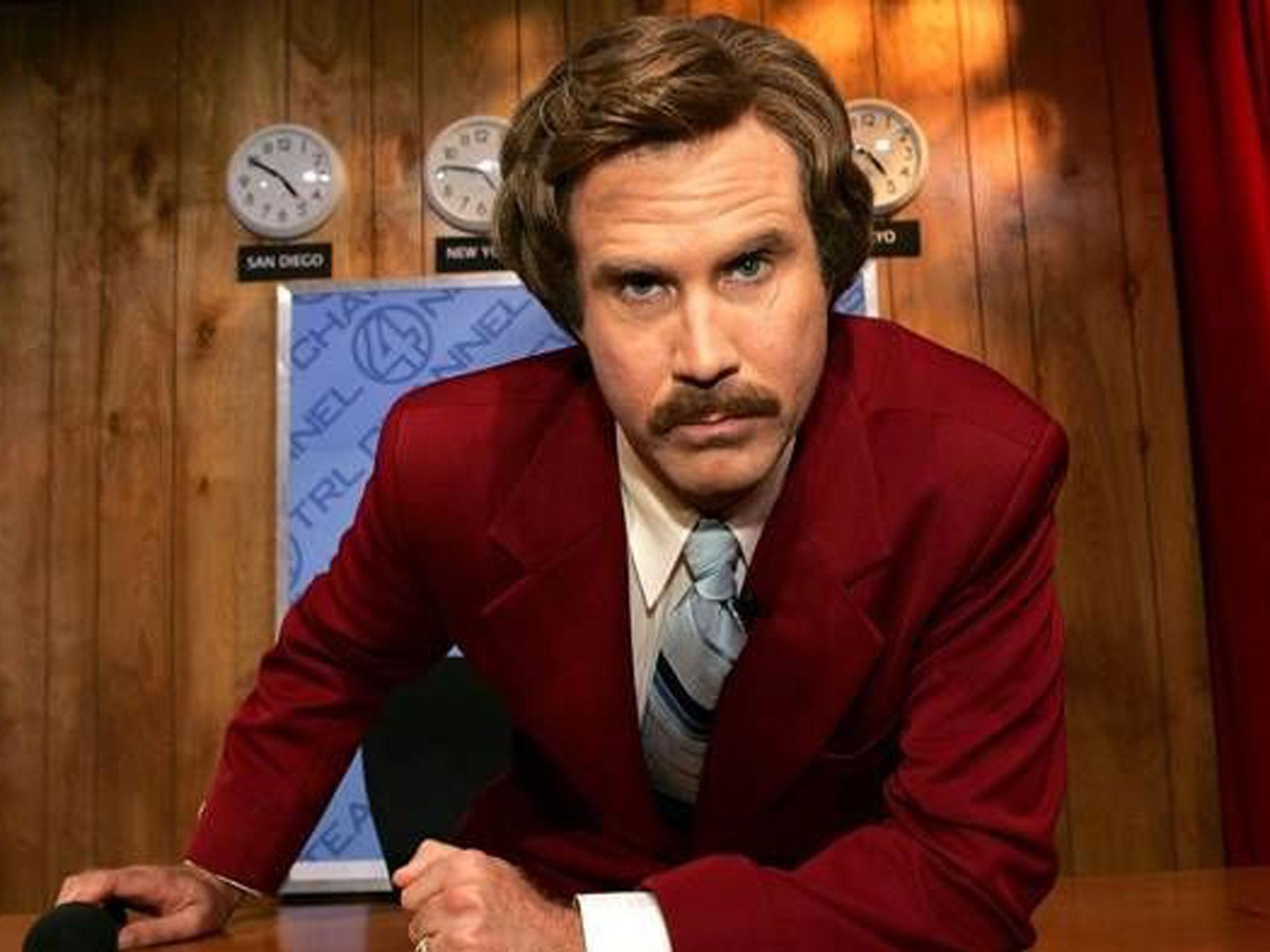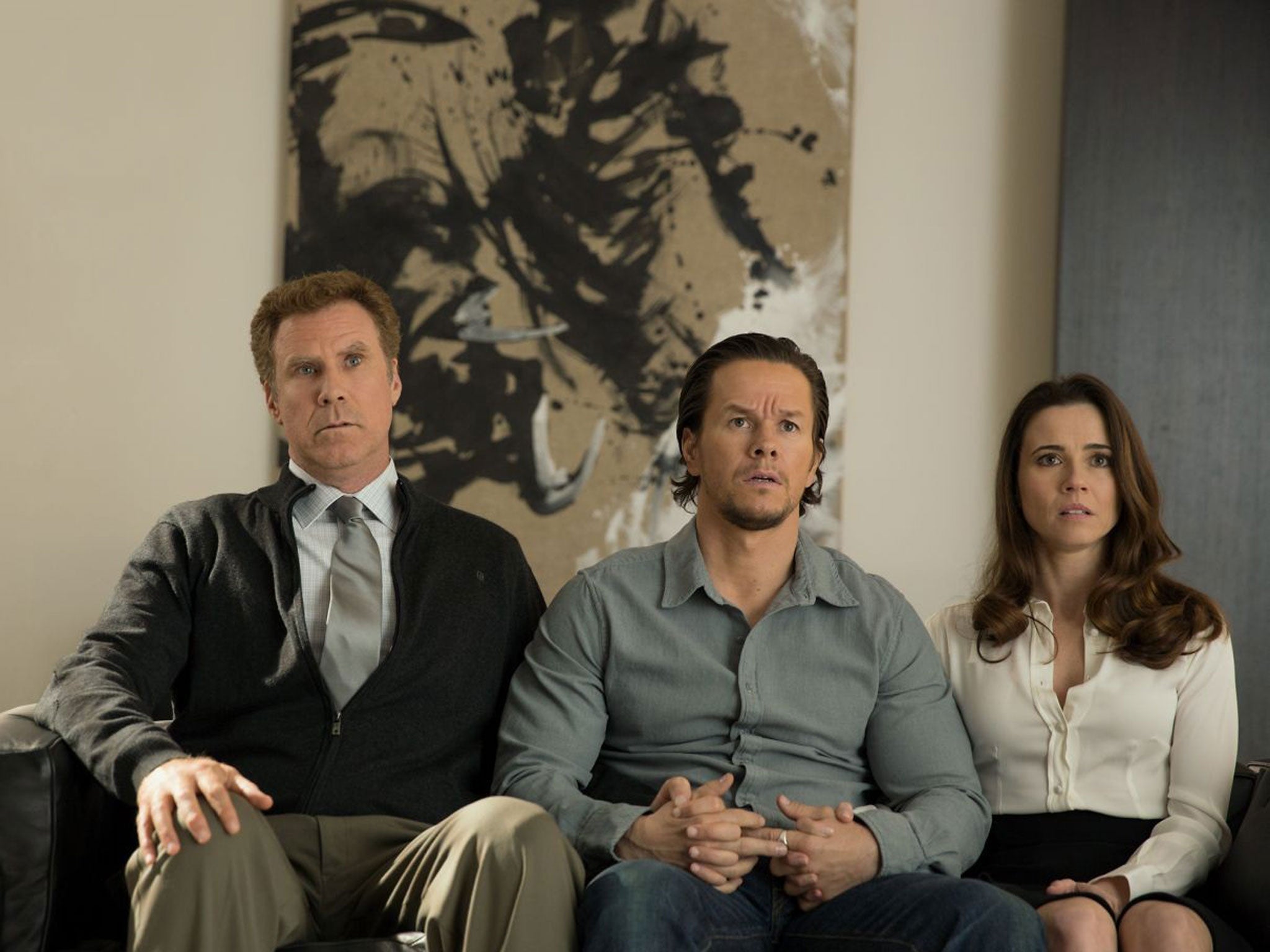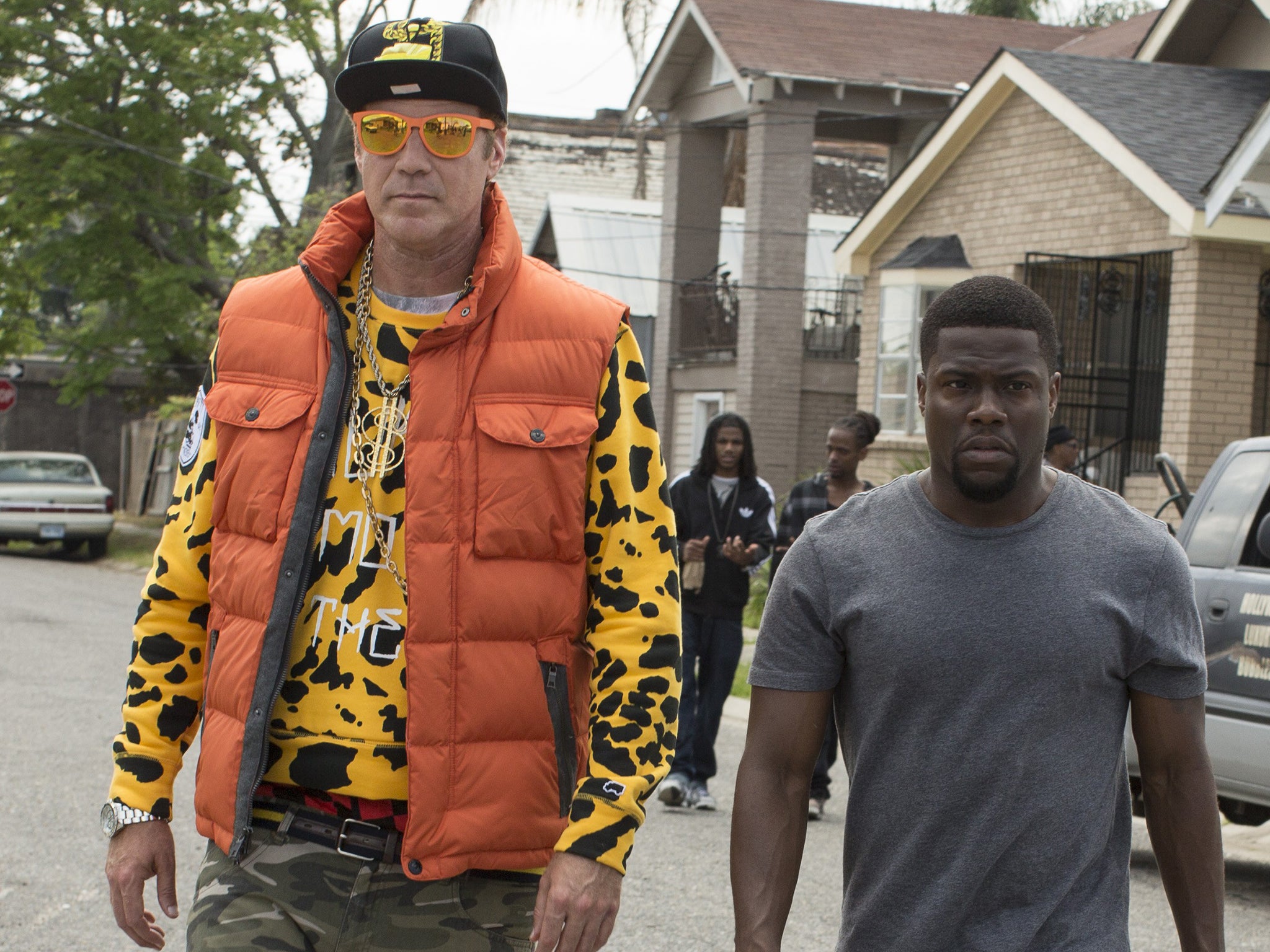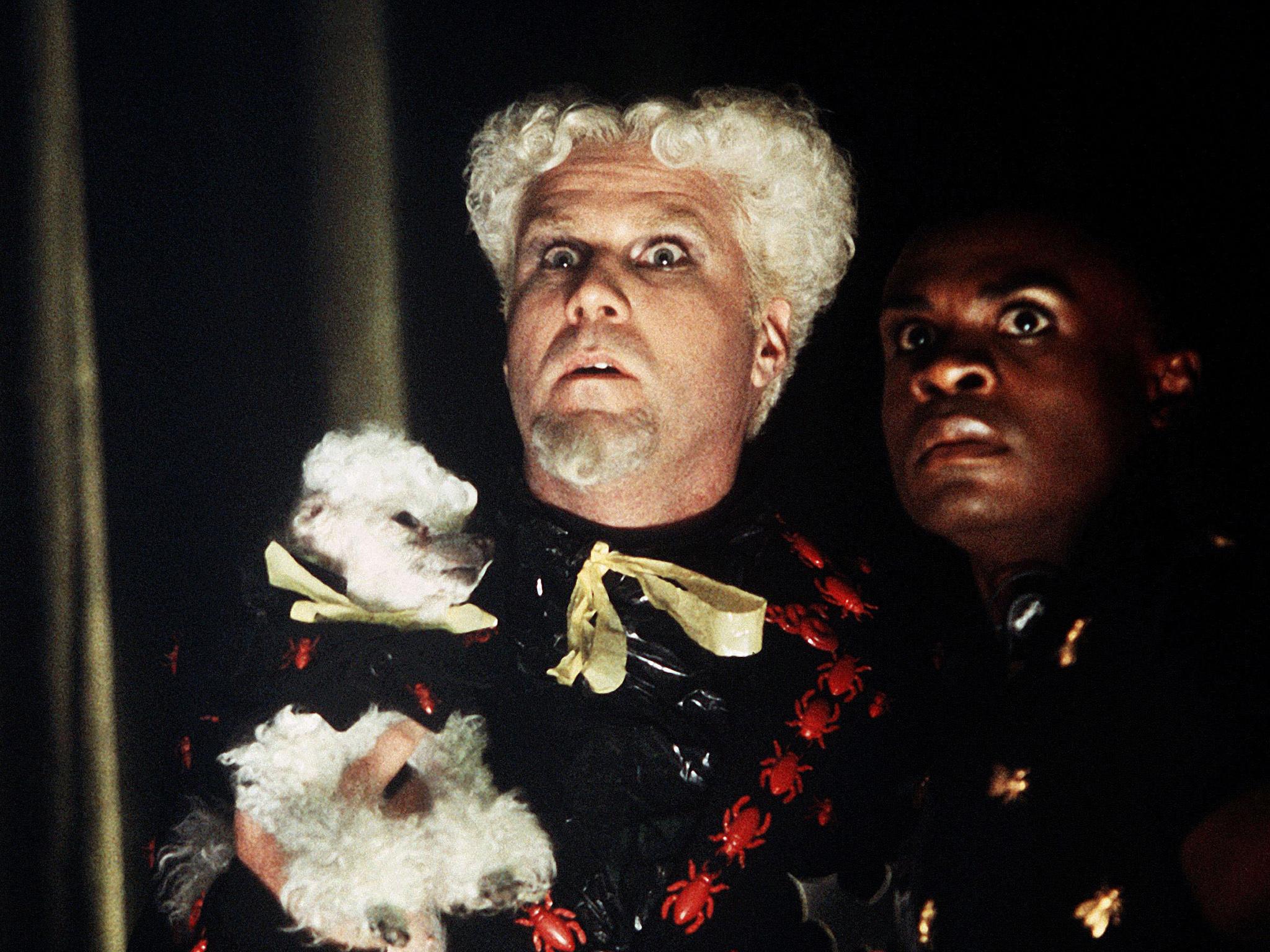Will Ferrell's arrested development: Why the comedian's frat boy shtick isn't funny anymore
The appallingly misjudged ‘Daddy's Home 2’ tops a decade of dodgy movie choices and commercial flops. While fellow Frat Pack actors diversify their careers, is Will Ferrell's knuckleheaded naivety simply past its sell-by date?

Will Ferrell is running out of ways to be funny. He has had a longer run than most as comedy’s undisputed box-office king, a reign which began with his superannuated thirtysomething frat boy in Old School (2003), and may be shuddering to a halt as the superannuated, weepy daddy’s boy in Daddy’s Home 2.
This appallingly misjudged, rushed sequel to the passable, high-concept stepdad film Daddy’s Home is the sort of car crash which takes down careers. It pushes the blubbering man-child side of Ferrell’s comic persona, and his loyalty to what he terms “broad commercial comedy”, past their limits. Weighed down with Christmas film tokenism, gross product placement, and a misbegotten script which tries to rehabilitate Mel Gibson even as it defeats John Lithgow, it’s Ferrell’s worst.
It confirms that the 50-year-old is at a crossroads. He has spent his film star life prolifically churning out ideas for major studios, hitting a sweet spot of overblown idiocy as a macho figure-skater in Blades of Glory (2007) and the heroically self-knowledgeless, knucklehead macho newscaster of Anchorman: The Legend of Ron Burgundy (2004).
The last decade has, though, been much more shaky. The commercially disastrous family film Land of the Lost (2009) was the first blow to Ferrell’s former box-office invicibility. Casa de Mi Padre (2012), a satire of Mexican telenovela soaps more suited to one of his old Saturday Night Live sketches, did little better. Outshone by Zach Galifianakis in The Campaign (basically Ron Burgundy runs for Senate), only the pointless, inferior Anchorman 2 and surprise smash Daddy’s Home have arrested his box-office slide.

What’s worse, Ferrell’s more artistically successful variations on his usual themes have resoundingly failed commercially. Get Hard (2015) was a racially subtle take on the mismatched buddy movie, as Ferrell’s improbably naive, disgraced investment banker is readied for life in a high-security prison by his far from ghetto black employee Kevin Hart. Unfairly tagged as racist after an early screening at SXSW, its failure suggested a sudden intolerance for Ferrell’s bawdy “Frat Pack” comedy generation.
The House (2017) gave rare prominence in that world to a female co-star, Amy Poehler, who played Ferrell’s wife in a still further out, bloodily violent satire on suburban aspiration, as the pair set up a secret neighbourhood casino to pay their daughter’s college fees, finding their inner Soprano along the way. Critics and crowds were equally perplexed by this tonally bizarre experiment.
Ferrell’s early bedrock strengths are now his weakness. The product of an unusually stable background – his parents’ divorce apart – in sleepy Irvine, California, which he’s recalled as a dull version of many of his characters’ suburban homes, his early intention was to forge a professional, suitcase-carrying career as a journalist. He bravely struck out for comedy instead. His subsequent huge success was built on both the work ethic and underlying conformism of that early life.
“The ideas have always come fairly easily,” he’s said, and he likes to turn anything he finds funny into a film immediately. This tall, burly, seemingly ungainly man has specialised in nice, naive idiots and sleazy, naive idiots, blundering and blustering through life with supreme unawareness. It’s not a comic persona built for subtlety, or durability. Gary Sanchez Productions, his long-running production company with writing partner Adam McKay, has notably failed to expand it. Now Ferrell is 50, the mileage is starting to show.

Everything Must Go (2010) saw him tentatively explore one alternate route. Based on a short story, “Why Don’t You Dance?”, by Raymond Carver – the laureate of flat and frustrated American lives also memorably adapted in Robert Altman’s Short Cuts – Ferrell plays Nick Halsey, an alcoholic salesman who loses his job and marriage on the same day. Locked out of his house and bank account, he makes a stubborn, futile stand in the remnants of his suburban kingdom, living on the front lawn where his wife dumped his possessions.
With a central metaphor recalling Burt Lancaster’s crushing odyssey through his Californian neighbours’ swimming pools in The Swimmer, it’s the sort of role Jack Lemmon specialised in as he hit middle age. Just as Lemmon developed his comic persona’s neurotic tics into despairing dramatic roles, Halsey is the sad underside of Ferrell’s bombastically self-deceiving suburban everymen. He brightens when interviewers remind him of it, but seems wistfully hopeless that major studios would ever permit him a dramatic career.
Everything Must Go was marketed as a comedy and left out to die at the US box-office, where it was barely seen. Instead of Ferrell actively pursuing another such role, Daddy’s Home 2 announces his early arrival at the Grumpier Old Men low end of Lemmon’s career.
Several of Ferrell’s “Frat Pack” friends have forged more cannily diverse, durable careers. In contrast to Ferrell’s Land of the Lost flop and craven bid for family film success with Daddy’s Home 2, Ben Stiller’s Night at the Museum franchise secured his all-round appeal. Stiller’s strip-mining of Meet the Parents’ comic assets with its abysmal, star-packed sequel Meet the Fockers could be Daddy’s Home 2’s blueprint, while The Secret Life of Walter Mitty (2013) and the chaotically overblown Zoolander 2 (2016) may have crashed both Stiller’s long-running career as a director, and his major comic stardom (Ferrell’s Zoolander 2 cameo, snaring Stiller’s imbecilic model in “a maximum security fashion prison”, shared that film’s ignominy). But Stiller had already built up other options.

His first film for director Noah Baumbach, the bittersweet mid-life crisis comedy While We’re Young (2014), led directly to Baumbach’s The Meyerowitz Stories this year, in which Stiller’s jittery angst holds its own against Dustin Hoffman’s Oscar-worthy atonement for Meet the Fockers (the film also rescued Adam Sandler from his exhausted comic career). That has led straight into the upcoming Brad’s Status, subversive School of Rock-writer Mike White’s take on yet another Stiller mid-life crisis.
This simply continues the twentysomething, Generation X angst of Stiller’s directorial debut, Reality Bites (1994), and earlier, finely honed adult farces, such as David O. Russell’s Flirting With Disaster (1996) and Wes Anderson’s The Royal Tenenbaums (2001). The brooding intensity which Stiller made hysterically absurd in Dodgeball and Tropic Thunder adapts easily to such seriocomic work.
His Dodgeball co-star Vince Vaughn (also Ferrell’s foil in Old School) has, meanwhile, turned his towering height and deadpan dryness into often viciously threatening tough guys in True Detective, Hacksaw Ridge and Riot In Cell Block 99.
A minor Frat Pack player, Steve Carrell, has also parlayed his nerdy persona into a chameleon career, including an Oscar-nomination for his controlling wrestling coach in Foxcatcher (2014), his current role as self-destructive tennis chauvinist Bobby Riggs alongside this year’s Oscar-winner Emma Stone in Battle of the Sexes, and his Gulf War veteran in Richard Linklater’s upcoming Last Flag Flying.
As with Stiller, Carrell’s range was already implicit in the likes of the near-tragic, deeply humane comedy The 40-Year-Old Virgin, which he co-wrote. Both men are now sometime comic actors more than comedy stars, able to depend more on good work than box-office success.
Ferrell doesn’t have that luxury. Daddy’s Home 2 finds his creative development as arrested as the blubbering, lumbering man-child he plays yet again. The Frat Pack are all in their fifties, and even man-children have to grow up. The easygoing, instinctive Ferrell must find the will to do so on screen, before he finds himself retired.
‘Daddy’s Home 2’ is in cinemas now
Join our commenting forum
Join thought-provoking conversations, follow other Independent readers and see their replies
Comments
Bookmark popover
Removed from bookmarks